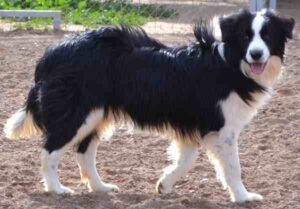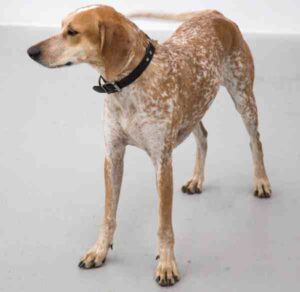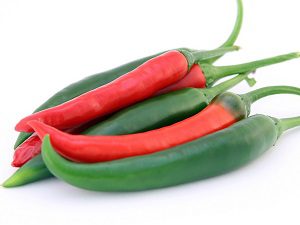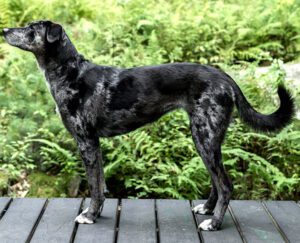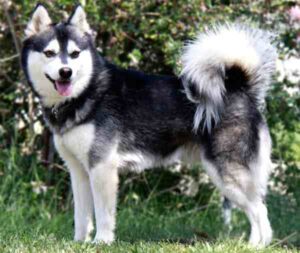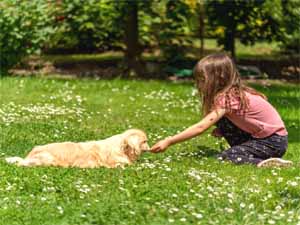The Chesapeake Bay Retriever dog is a large-sized breed of dog belonging to the Retriever, Gundog and Sporting breed groups. Members of the breed may also be referred to as a Chessie, CBR or Chesapeake.
The breed was developed in the United States Chesapeake Bay area during the 19th Century. It is primarily kept as a family pet and a hunting companion. The breed is historically used by area market hunters to retrieve waterfowl, pull fishing nets, and rescue fisherman.
The Chesapeake Bay Retriever dogs are often known for their love of water and their ability to hunt. The breed is somewhat similar in appearance to the Labrador Retriever.
These dogs trace their history to two pups who were rescued from a foundering ship in Maryland in 1807. The male “Sailor” and female “Canton” were described as Newfoundland dogs, but were more accurately Lesser Newfoundland or St. John’s water dogs.
These two lived in different parts of the bay area and there is no record of a litter being produced together. They were bred with area dogs, with more consideration given to ability than to breed, to create the beginnings of the Chesapeake Bay Retriever breed.
There are few records of the breeds of these early dogs, but spaniels and hounds were included. Dogs from both Chesapeake Bay shores were recognized as one of three types of Chesapeake Bay Ducking Dog in 1877. In 1918 a single type, called the Chesapeake Bay Retriever, was recognized by the American Kennel Club, and there have been few changes to the breed standard since then.[1]
Chesapeake Bay Retriever Dog Characteristics
The Chesapeake Bay Retriever is a medium to large sized dog with beautiful appearance. Distinctive features of the breed include eye that are very clear, of yellowish or amber hue, hindquarters as high or a trifle higher than the shoulders, and a double-coat that tends to wave on shoulders, neck, back, and loins.
They have waterproof coat that feels slightly oily and is often associated with a slight musky odor. Three basic colors are generally seen in the breed: brown, which includes all shades from a light to a deep dark brown; sedge, which varies from a reddish yellow through a bright red to chestnut shades; and deadgrass in all its shades, varying from a faded tan to a dull straw color.
The breed standard states that white may also appear but it must be limited to the breast, belly, toes, or back of the feet. The head is round and broad with a medium stop and muzzle.
The lips of these dogs are thin, and the ears are small and of medium leather. Their forelegs should be straight with good bone. And their hindquarters are especially strong and the toes webbed since excellent swimming ability is important for this breed.
The Chesapeake Bay Retriever dog breed is also known for it’s large and powerful chest, used to break apart ice when diving into cold water while duck hunting.
The Chesapeake Bay Retriever dogs are medium to large in size. Their average body height is between 24 and 26 inches at the withers for males, and between 22 and 25 inches for the females. Average live body weight of the mature dogs is between 34 and 45 kg for the males and between 30 and 40 kg for the females.
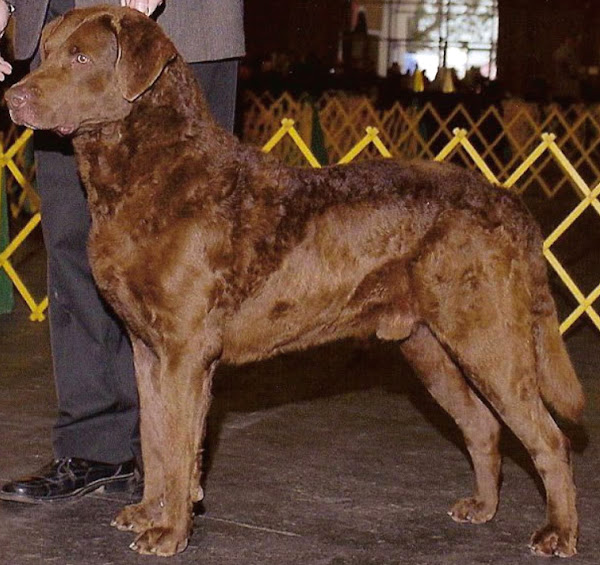
Temperament
The Chesapeake Bay Retriever dogs have a bright and happy disposition. They are very intelligent and have quiet good sense. They are very affectionate and protective in nature.
Some dogs can be very vocal when happy, and some will ‘smile’ by baring their front teeth in a peculiar grin.
These dogs can make excellent family dogs when socialized properly. Some Chesapeakes are assertive and willful and may be reserved with strangers, but others are passive and outgoing with people.
Lifespan
Average lifespan of the Chesapeake Bay Retriever dog is between 10 and 13 years.
Feeding
How much a mature dog eats depends on it’s size, age, build, metabolism and activity level. Dogs are individuals, just like people, and they don’t all need the same amount of food.
The Chesapeake Bay Retriever dogs are medium to large in size and are very active. So, their diet should be formulated for a medium to large sized breed with high exercise needs. Generally 2 to 2.5 cups of high-quality dry food will be enough for a mature dog. Consult with a vet in your area for better recommendations.
Caring
Taking good care of the animals is very important for raising Chesapeake Bay Retriever dogs. You should keep up with your dog’s regular veterinary checkups to detect any health concerns early.
These dogs generally like cool climate. But they also do best in a warm climate if they have frequent opportunities to swim.
They generally require a great deal of exercise to remain happy and healthy. They will also be happy if kept indoor, and will relax with you while you watch TV.
The Chesapeake Bay Retriever is a versatile breed competing in field trials, hunt tests, conformation, obedience, agility and tracking, yet remains true to its roots as a hunting dog of great stamina and ability. It is an intelligent breed and learns at a high speed. So, training them is relatively easy.
Health
The Chesapeake Bay Retriever dogs are generally healthy. But like all other dog breeds, they are also prone to certain health conditions.
Their common health problems include bloat, chondrodysplasia, epilepsy, hip dysplasia, progressive retinal atrophy and Von Willebrand’s disease. Always try to keep good contact with a vet in your area.
| Breed Name | Chesapeake Bay Retriever |
| Other Names | Also known by many other names such as Chessie, CBR or Chesapeake |
| Breed Size | Medium to large |
| Height | Between 24 and 26 inches at the withers for males, and between 22 and 25 inches for the females |
| Weight | Between 34 and 45 kg for the males and between 30 and 40 kg for the females |
| Good as Pets | Yes |
| Climate Tolerance | All climates, but prefer cool climates |
| Color | Any color of brown, sedge or deadgrass with limited white spots |
| Lifespan | 10 to 13 years |
| Good for Children | Yes |
| Rarity | Common |
| Country/Place of Origin | United States |

